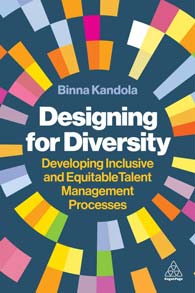A lack of eye contact, a repeatedly mispronounced name, or exclusion from a chat about the weekend’s football. These may seem trivial, but the impact is real. In his second article in a three-part series, Professor Binna Kandola examines how ‘micro-incivilities’ create a workplace culture of invisible talent that is undervalued and overlooked.
We like to believe that talent management is based on merit. That if people are capable and hard-working, their efforts will be recognised and rewarded. But this belief ignores the reality of how workplace culture shapes not only how people perform, but also how they are perceived.
Rethinking talent
Part 1: Who was never considered in the first place
Talented people don’t operate in a vacuum. They work in teams, within hierarchies, under pressure, and under observation. And when the environment is subtly excluding or dismissive – not necessarily hostile, but not quite welcoming either – the effect is cumulative, and often corrosive.
Much of this exclusion is not loud or overt. It shows up in quiet, daily interactions: the conversation someone’s not invited into, the eye contact that’s never made, the comment that is ignored or dismissed. These moments can seem trivial to the person delivering them – and yet, to the person on the receiving end, they are anything but.
Micro-incivilities, not microaggressions
This is why I prefer the term micro-incivilities over the more widely used microaggressions. The word aggression suggests intent – a conscious decision to harm – and that’s not always the case. In fact, most people don’t realise they’re doing anything at all. But the impact is real.
I define micro-incivilities as the kinds of daily, commonplace behaviours or aspects of an environment which signal, wittingly or unwittingly, to members of out-groups that they do not belong and are not welcome.
These signals may be subtle, but over time, they can chip away at confidence, increase stress, and undermine someone’s sense of security at work. And when that happens, performance suffers. Not because the person lacks ability, but because they are constantly working uphill.
Different groups experience different forms of micro-incivility. Women will have their ideas in meetings ignored or overlooked until repeated by a male colleague. They describe being mistaken for support staff, or routinely asked to organise refreshments in meetings – reinforcing outdated and subordinate assumptions about their role.
‘Where are you really from?’
People of colour are frequently asked, “Where are you from?” And when they answer with a UK city or town, the follow-up question comes: “No, where are you really from?” This question, intended or not, suggests they are outsiders – people whose presence still requires explanation.
Others speak of their names being mispronounced again and again, or being confused with someone else who happens to be from the same ethnic background. These behaviours communicate, however subtly, that the person isn’t being valued or seen – at least, not as an individual.
Even something as basic as eye contact can carry enormous meaning. One senior professional told me how her boss would never look at her during meetings. Others in the room hadn’t noticed – why would they? But to her, it was unmistakable. She felt invisible. When she finally mentioned it to a colleague, his dismissive reply was, “Why would I notice that?” The message couldn’t have been clearer: this kind of thing doesn’t matter – and neither do you. It seems trivial until you realise that eye contact transmits emotion, letting someone know that they are valued, respected and included.
Personnel Today readers can claim a 25% discount on Binna Kandola’s book, Designing for Diversity, published by Kogan Page, by using the code KOGANPAGE25 – order now
Another woman, working in a tech firm with a self-described progressive culture, shared how the informal workplace chat always revolved around football and Formula One.
When she tried to join in – even talking about teams and drivers she followed – the topic would change. She tried again with rugby, then cricket. The pattern repeated. The message wasn’t just about sport. It was about who gets to feel like they belong, and who doesn’t.
Performance plateau
The effects of these behaviours are not only emotional. They are professional. When someone feels undervalued or on the edge of the group, they are less likely to speak up, share ideas, or take risks.
They may contribute less in meetings, hesitate to go for promotions, or quietly begin looking elsewhere. Their performance appears to plateau. Not because they aren’t capable, but because they are carrying the additional burden of exclusion.
They are constantly monitoring how they come across, second-guessing what’s safe to say, and wondering whether they will be taken seriously.
Over time, managers begin to assume that they are simply not leadership material. Not assertive enough. Not confident enough. Not quite the right fit. And so they are overlooked – again.
This is how talented people disappear from view. Not because they lacked potential, but because the environment failed to support them in showing it. And the organisation loses out.
The risk of ignoring micro-incivilities is not just a matter of fairness – it’s a matter of performance and potential. These behaviours directly shape who gets to be seen, who gets to be heard, and who gets to be considered for the next opportunity.
Unless we examine culture – not just outcomes – we will keep asking why our leadership pipelines lack diversity while missing the deeper answer. The workplace, as it stands, too often asks people to prove themselves in conditions that quietly hold them back.
In the final article in this series, I’ll explore how organisations can rethink what we need of leaders today and in the future.
Sign up to our weekly round-up of HR news and guidance
Receive the Personnel Today Direct e-newsletter every Wednesday
HR business partner opportunities on Personnel Today
Browse more HR business partner jobs

